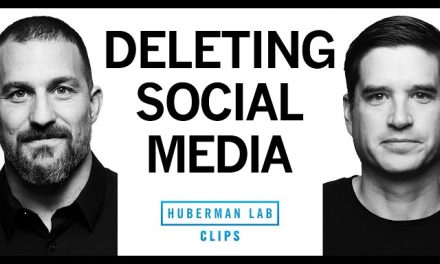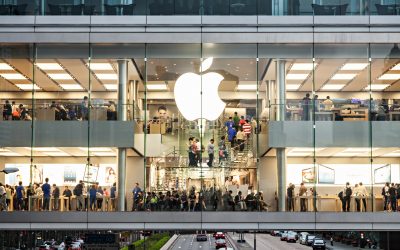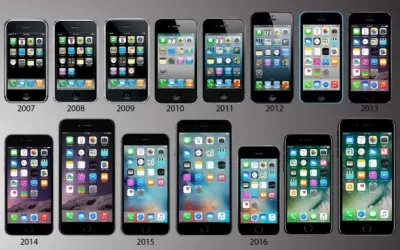The Great Debate of the 21st Century
In the digital age, social media’s pervasive influence has sparked a profound debate: should you delete your accounts? This question is not merely practical; it’s deeply personal, touching on concerns about privacy, mental health, and social connectivity. Join us as we delve into the nuances of this modern dilemma and examine the factors that may influence your decision.
Social media platforms have transformed how we communicate and share information, but they also raise significant issues. Privacy breaches, data security concerns, and the impact on mental well-being are common worries prompting individuals to consider deleting their accounts. Disconnecting from social media can offer tangible benefits, including reclaiming privacy, reducing screen time, and fostering offline relationships.
However, social media also serves as a powerful tool for connectivity and information dissemination. It enables real-time networking, facilitates community engagement, and keeps users informed about global events and trends. For businesses and professionals, maintaining a social media presence can be essential for brand visibility and audience engagement.
Ultimately, the decision to delete social media accounts hinges on personal values and lifestyle preferences. Some advocate for a balanced approach, embracing the benefits while mitigating the drawbacks through intentional use and moderation. Others opt for a clean break, prioritizing mental health and privacy above digital connectivity.
As you navigate this complex decision, consider exploring diverse perspectives and informed opinions. Stay informed and engaged with discussions on topics like social media and more at SFL.Media, your trusted source for reliable and free news in South Florida. Whether you choose to delete, deactivate, or manage your social media use, make an informed decision that aligns with your values and well-being.
- The Rise of Social Media: A Double-Edged Sword
The emergence of social media has transformed our communication, connection, and information-sharing paradigms. This technological revolution has democratized access to global networks, enabling unprecedented connectivity and instantaneous dissemination of information. Individuals can now engage with diverse communities, share experiences, and stay updated on the latest news with unparalleled ease.However, amidst this rapid evolution, social media presents significant challenges. Privacy concerns loom large, as personal data becomes increasingly vulnerable to exploitation and misuse. Data breaches and identity theft are persistent threats, raising questions about the safety of online interactions. Moreover, the pervasive nature of social media can have profound effects on mental well-being, fueling anxiety, comparison, and social validation-seeking behaviors.While social media offers undeniable benefits, its complexities warrant careful consideration. Balancing the advantages of connectivity and information access with the need for privacy and mental health preservation is essential in navigating the modern digital landscape. - The Case for Deleting: Benefits and Reasons
There are compelling reasons why individuals opt to delete their social media accounts. First and foremost, deleting social media can lead to a significant enhancement in privacy. By removing oneself from these platforms, users can reclaim control over their personal data and reduce the risk of exposure to privacy breaches and data misuse.Moreover, deleting social media is often associated with a reduction in screen time, which can have positive effects on mental well-being. Breaking free from the constant digital stimulation can promote mental clarity, reduce stress levels, and improve overall focus and productivity.Another key benefit of deleting social media is the opportunity to foster more meaningful offline connections. By stepping away from virtual interactions, individuals can prioritize face-to-face relationships, deepen personal connections, and engage in more fulfilling experiences in the physical world.Ultimately, many people choose to delete their social media accounts as a means of prioritizing their well-being and reclaiming autonomy over their time and attention. This decision reflects a desire to break free from the addictive allure of social platforms and cultivate a healthier relationship with technology and interpersonal relationships.
- The Case Against Deleting: Staying Connected and Informed
On the contrary, social media offers valuable benefits that argue against deleting accounts. One of the primary advantages is its ability to facilitate real-time connectivity and networking opportunities. Social platforms enable individuals to stay connected with friends, family, and colleagues regardless of geographical distances, fostering a sense of community and support.Additionally, social media serves as a vital tool for staying informed about global events, trends, and developments. Users can access breaking news, participate in discussions, and gain insights into diverse perspectives on various topics. This access to information is particularly crucial for businesses and professionals who rely on social media visibility to enhance brand awareness, engage with customers, and promote their products or services.For businesses, maintaining a social media presence is essential for visibility, customer engagement, and brand building. Social platforms offer unparalleled reach and targeting capabilities, enabling businesses to connect with their target audience and drive growth through digital marketing strategies.In summary, while deleting social media may address certain concerns, it also entails forfeiting valuable opportunities for connectivity, information access, and professional visibility that social platforms provide.
- Finding Balance: Strategies for Healthy Social Media Use
Achieving a healthy relationship with social media involves adopting strategies that promote balance and well-being. Rather than completely eliminating or overindulging in social platforms, individuals can benefit from setting boundaries and practicing mindful engagement.One effective strategy is to establish clear boundaries around social media usage. This includes defining specific times and durations for using these platforms and refraining from accessing them during designated offline periods. By implementing these boundaries, individuals can mitigate the risk of excessive screen time and digital fatigue.Another important approach is to curate social media feeds to limit exposure to negative content. This involves unfollowing or muting accounts that contribute to stress, anxiety, or negativity and actively seeking out positive and uplifting content that inspires and motivates.Taking regular breaks from social media is also crucial for maintaining balance. Disconnecting periodically allows individuals to recharge, focus on offline activities, and nurture meaningful relationships in the physical world. Engaging in hobbies, spending time in nature, or practicing mindfulness can help counteract the constant digital stimulation associated with social media.
By incorporating these strategies into daily routines, individuals can cultivate a healthier and more intentional approach to social media use, promoting well-being and enhancing overall quality of life.
Ultimately, the decision regarding your social media accounts is deeply personal and should align with your individual circumstances and values. Whether you opt to delete, deactivate, or simply adjust your usage, prioritizing your well-being and mental health is paramount. It’s essential to recognize that everyone’s relationship with social media is unique, and there’s no one-size-fits-all approach.
Deleting or deactivating social media can offer a sense of liberation, providing a break from the constant digital noise and allowing for more meaningful connections offline. This choice may be particularly beneficial for those seeking greater privacy, reduced screen time, or relief from the pressures of comparison and validation.
On the other hand, managing your social media usage can also be a viable option. Setting boundaries, curating your feed, and practicing mindful engagement can help strike a balance between staying connected and preserving your well-being.
No matter which path you choose, remember that your mental health should always take precedence. It’s okay to reassess your relationship with social media and make adjustments that align with your goals and values.
For diverse perspectives and insightful content on topics like social media and beyond, turn to SFL.Media, your trusted source for reliable and free news in South Florida. Stay informed, explore new ideas, and join us on a journey of discovery as we navigate the complexities of modern life together.
Ready to dive into more insightful content and stay informed? Visit SFL.Media today for the latest news, trends, and analysis from South Florida and beyond. Let’s embark on this journey of empowerment and discovery together.































South Florida Media Comments